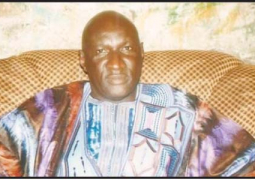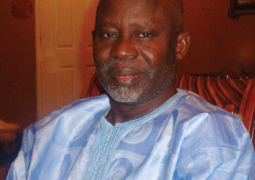Dawda Manneh, National Assembly Member for Nianija Constituency, has been thrown out of the ruling APRC party. He is said to be connected with the crime of drug smuggling, something that would be debasing for an honourable member of the august legislative body - the National Assembly.
By dismissing Dawda Manneh, the decision has apparently vindicated our position that people of questionable character must not be allowed to hold positions of trust.
We commend the APRC for taking this step for more reasons than one. First, it shows that the party is ever ready to deal with any wrong-doer in its fold. Second, it shores up the image of the party as not being a hideout for miscreants. Third, it serves as a deterrent to other party members that belonging to the ruling APRC party offers them no immunity from misdeeds. They have to take responsibility for any despicable deeds.
It is our contention that Dawda Manneh has got his just deserts. Now that he is in the doghouse, he will have time to reflect on his career and life, and learn to live honourably in the future. The APRC would be glad to see justice take its course in this case: let Dawda Manneh go the full course of the law.
But there might be many Dawda Mannehs out there who have not been caught. They may deceive themselves by thinking that they can cheat the system and get away with. Nothing can be further from the truth. Time exposes every falsehood. And the law would catch up with them in due course.
This is the main lesson we should all learn from the downfall of Dawda Manneh. You never can tell when the law will catch up with you. In popular parlance, it is said that there are ninety-nine days for the thief but one day for the owner.
Besides, we should all learn to apply integrity in everything that we do. That way, we will be able to account for our actions, and then sleep the sleep of the just.
'Make yourself an honest man and then you may be sure there is one rascal less in the world'.
Thomas Carlyle
Read Other Articles In Article (Archive)



